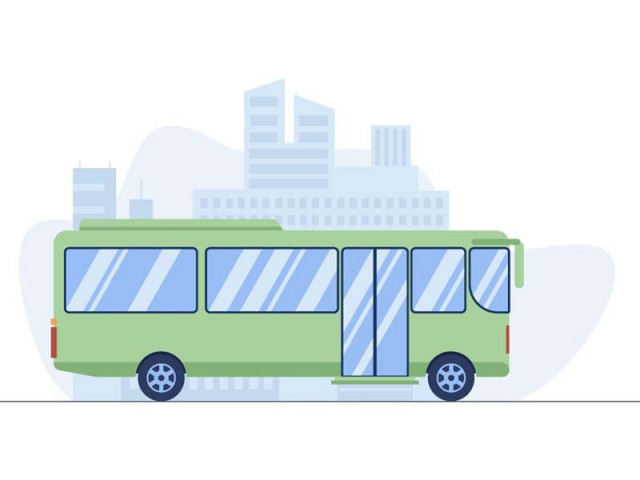Transport fares up after hike in petrol prices
Lack of govt regulation of inter-provincial bus tickets leaves prices entirely at the mercy of transporters

Prices for petroleum products like oil and gas have always been prone to see-sawing in the international market.
The most recent fluctuation is nothing like the world has ever seen before. It is said to be the product of a truly global energy crisis that governments near and far have been trying to mitigate through diplomacy, trade and policy.
However, in the case of Pakistan, which is already battling political instability on top of its worst economic crisis, the shooting oil prices have pushed millions in the country to the bleeding edge of bankruptcy.
Any kind of variation in fuel prices, almost always has an immediate impact on the price of other commodities and services such as food and transport. Although, the Provincial Transport Authority (PTA) exists to maintain transport fares, but their powers are limited to inter-district transportation, while there is no benchmark for inter-provincial transport fares.
Owing to this, the people of Khyber Pakhtunkhawa have been slapped with massive hikes in transportation prices. Afridi, who is waiting for a Islamabad-bound Hiace bus, finds the new fares unprecedentedly extortionate, with no bearing in government regulations. He has yet not purchased the bus ticket, hoping to talk the driver into offering a more reasonable price. He is the only passenger keeping this private bus from moving, but his efforts appear to be in vain.
“We don’t have any official fare list for travelling between Peshawar and Islamabad and we adjust our prices according to the the petroleum rates,” asserted, Akbar Ali, the bus driver, who is in no mood for entertaining Afridi’s demand for a bargain and has already refused him the ticket.
However, according to Afridi, who works at a shop in the federal capital, there is a significant difference in fares sought by buses from Islamabad and those from Peshawar. “When I came here a few days ago, the bus ticket from Islamabad to Peshawar was Rs400. Now that I am going back, these drivers are asking me for Rs470,” he complained, adding that he has been trying lodge a complaint about this at the bus stop office, but there is no one there to listen to him.
According to PTA officials, cross-provincial fares are never regulated, and the government has no control over what a private service decides to charge. “No, you wont find an official fare list anywhere since these modes of transport are mostly deregulated, as there is difference between charges from travelling to and from Peshawar,” said PTA Secretary Asad Sarwar when conveyed Afridi’s concerns.
Per the transporters however, it is not them but the government’s inability to contain the petroleum price hike that is to blame. “The government doesn’t regulate our prices, so are business decisions are based on coverings our overheads. We always adjust fares in the month of June, but this year’s bomb of inflation and surging fuel prices meant that we had to also bump our fares by Rs50 to Rs70, to stay in business,” commented Transport Workers Union President Moor Muhammad Mohmand.
Per Mohmand, the situation has been rather unpredictable. “Look, we have to feed our kids and when these fuel prices increase, what options are we left with and that too in absence of an official list—of course we have to do it by ourselves,” he told The Express Tribune.
Published in The Express Tribune, July 10th, 2022.



















COMMENTS
Comments are moderated and generally will be posted if they are on-topic and not abusive.
For more information, please see our Comments FAQ